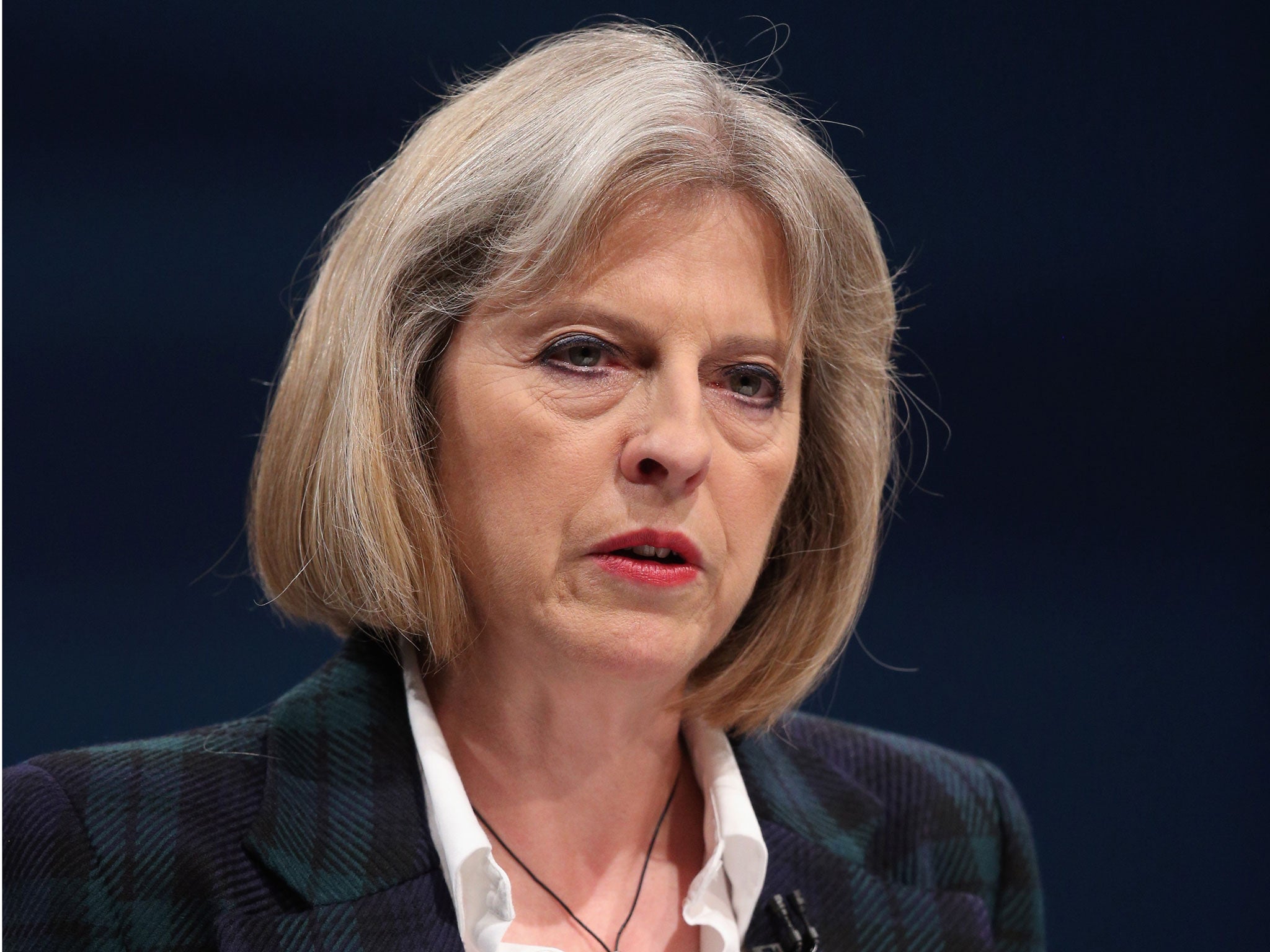Modern Slavery Bill: 'Appalling' human traffickers to receive life sentences under draft legislation
Home Office confirms Bill will be published on same day Theresa May receives evidence from MPs and experts, who urged her to 'make the most of the opportunity' to change the law

Human traffickers face life in jail under plans to combat the "horrendous and appalling crime" of modern-day slavery set out today by Theresa May, the Home Secretary.
As many as 10,000 people are believed to be living as virtual slaves in Britain, working in the sex trade, in agriculture and food processing and as domestic staff.
The problem was highlighted last month when police rescued three women who were allegedly being held as slaves in a south London house for 30 years.
Under the draft Modern Day Slavery Bill, all existing legislation will be pulled together into a single piece of legislation.
It is hoped the moves will boost the number of prosecutions, which have been in single figures in recent years.
Mrs May said one of the obstacles to successful prosecution was the reluctance of victims to come forward because of fears that they might themselves be brought to court or be sent back to their home countries.
New guidance is being drawn up by the Director of Public Prosecutions to protect victims of slavery from being prosecuted for crimes which they have been forced to commit because of their illegal servitude, she revealed.
Mrs May told the BBC: "The number of referrals has been increasing and it is on that basis that we believe we have seen an increase in this absolutely horrendous and appalling crime.
"One of the purposes of bringing the Bill forward is to ensure that we can enhance our ability to deal with the slave-drivers and therefore reduce the prospect of people being victims in the future.
"I recognise that there is a problem in terms of the very small number of prosecutions for trafficking or slavery offences that we have had. One of the things the Bill does is consolidate this structure and introduce longer sentences."
Mrs May made clear she recognised that the prosecution of victims of trafficking and slavery - such as the case unsuccessfully brought against a group of Vietnamese children forced to work in a cannabis factory - might deter victims from taking the stand against their exploiters.
"We do need victims to be willing to come forward and give evidence in these cases," she said. "That issue of whether or not a victim is going to be treated as a criminal themselves is consistently raised. I have talked to both the former and the current Director of Public Prosecutions about the treatment of victims and about why it is that we are not seeking more prosecutions for trafficking and slavery cases.
"The DPP and the Crown Prosecution Service are issuing more guidance to make clear the circumstances around this question of where a victim has been forced into criminality because of their servitude, because of what the slave-driver has done."
The Bill contains provisions to give automatic life sentences to offenders who already have convictions for very serious sexual or violent offences. It introduces Trafficking Prevention Orders to restrict the activity and movement of convicted traffickers and stop them from committing further offences.
And a new Anti-Slavery Commissioner will be appointed to hold law enforcement and other organisations to account.
Shadow home secretary Yvette Cooper said the legislation should do more to provide protection for child victims of trafficking.
She said: "There is cross-party consensus that we need new action to tackle modern-day slavery. And we welcome the limited moves in this Bill.
"But we would like to see the Bill go further - particularly to provide stronger legal protection for child victims. It is right to increase sentencing for traffickers and to make it easier to prosecute these heinous crimes and prevent repeat offending.
"But this Bill should also be an opportunity to end the suffering of slavery victims, particularly children, and I urge the Home Secretary to include action in the Bill.
"It is appalling that two-thirds of children found by the authorities after being held as slaves go missing again because the system to protect them isn't strong enough.
"Failed once by those who betrayed them into slavery, they are failed again by the state in not protecting them. Trafficked children should have access to a trusted and independent advocate, or guardian, who is legally responsible for them and their interests.
"There is a growing coalition of support behind this new policy, from the charities and frontline practitioners to campaigners in Parliament. We need tough action to stop traffickers, but prosecutions will fail, justice will be denied and slavery will continue unless there is more support for victims too."
Human trafficking charity Hope For Justice said ensuring victims are properly supported is essential to successfully prosecuting offenders.
Charity founder Ben Cooley said: "We've learnt from experience that victim welfare is inextricably linked to the prosecution of perpetrators. When victims are supported from rescue right through to the courtroom, their testimonies make all the difference in seeing justice served. Sadly, we don't always see that happen in the UK and Hope For Justice exists to stand in those gaps.
"This Bill is a critical step towards ending slavery in our country but going forwards we must all ensure that victims are supported so they don't disappear on the other side of initial after-care provision just to be re-trafficked."
Bookmark popover
Removed from bookmarks